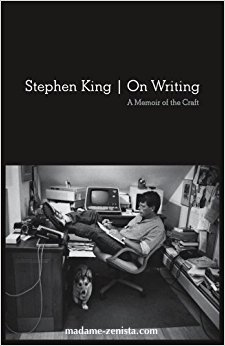 “Life is never perfect. We all live some form of Option B. This book is to help us all kick the sh*t out of it.”
“Life is never perfect. We all live some form of Option B. This book is to help us all kick the sh*t out of it.”
Sandberg is the COO of Facebook whose husband of 11 years suddenly died in May 2015 during their vacation in Mexico. Their friend and psychiatrist Adam Grant helped her cope with the tragedy. This book is the result of Sandberg’s personal insights, Grant’s research, several interesting studies and inspiring stories of many who faced adversity -death, illness, sexual assault, war or other extreme hardships- and how they got over it.
Here are some important points I noted:
- 3 P’s that stunt ones recovery (per psychologist Martin Seligman) :
1. Personalization– belief that we are at fault for a given adversity
2. Pervasiveness – a belief that an event will affect all areas of our lives
3. Permanence– a belief that the aftershocks of the adverse event will last forever. - It is important for family and friends to reach out and acknowledge the pain and assure that they are there, rather than avoid because they are uncomfortable or not sure what exactly to say.
- Journaling, or even voice-recording, could be a powerful tool for learning self-compassion. By putting feelings into words, you give yourself more power over them. At the end of the day, write down 3 things you are grateful for. Another more active form that builds self-confidence would be to write down three things that you did well in the day, the “small wins”.
- Building resilience in children depends upon the opportunities they have and the relationships they form with parents, teachers, friends and caregivers, fostering four core beliefs:
1. That kids have some control over their lives: This comes with clear and consistent communication of expectations, and giving them structure and predictability.
2. Learning from failure: Tell kids that if they find something difficult, it means their brain is growing. Foster a “growth mindset” as against “fixed mindset,” e.g. when applauding say “you tried so well” as against ” you are so smart”. The latter actually puts a cap of sorts that discourages kids to go beyond.
3. That kids matter as human beings: Listen closely to their ideas, make them feel that others notice , care for and rely on them. This helps them create attachments.
4. They have real strength to rely on and share: Help children identify their strengths. This is a great tool in life and critical after any traumatic events. - Just as family stories help children feel a sense of belonging, collective stories create identities for communities building collective resilience that is the need of the hour in today’s fragmented world.
- We have blind spots- weaknesses that others see but we don’t. It is important to seek constructive criticism; one of the best ways to see ourselves clearly is to ask others to hold up a mirror.
The last part is about learning to love and laugh again, especially after a partners death. Sandberg gives statistics and stories of how prejudiced the society is, particularly towards widows, if they try to find love again. Her own case proves the point: encouraged by her family and friends she started seeing someone, the news story received some very angry and mean comments.
I found Sandberg’s intimate description acute pain she and her kids experienced day in day out quite touching, and left me teary eyed many times. It is indeed difficult to get through loss or trauma, but trying is all we can do. And if there is support of either family – friends, or if one reaches out to groups facing similar struggle, along with right tools, it becomes easier. Also, finding greater meaning in life makes it bearable.
Option B: Facing adversity, Building Resilience, And Finding Joy is well written, not too big, comprehensive and an easy read. 5 Stars of Goodreads.
Helpful Links: OptionB.org, Facebook Page.
Some thoughts from the book:
“Self-compassion isn’t talked about as much as it is usually confused with self-pity and self-indulgence. Self-compassion comes from recognizing that our imperfections are part of being human.”
“Children look for acceptance in drugs, alcohol and unsafe sex.”
“Talk to people about their grief instead of avoiding the conversation because you are uncomfortable or you think they will not feel good about it.”








 Lets first get this out of the way: I am not a Stephen King fan, nor have I ever read any of his other works, only because I was never into the genre he mostly writes. However, whatever connection I do have with him is through
Lets first get this out of the way: I am not a Stephen King fan, nor have I ever read any of his other works, only because I was never into the genre he mostly writes. However, whatever connection I do have with him is through 




